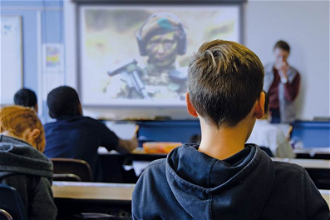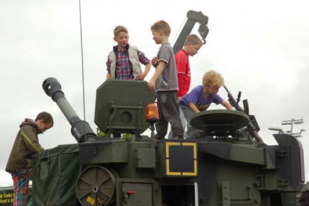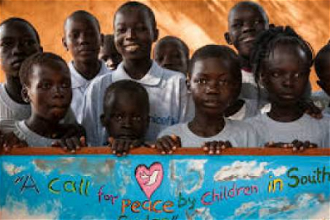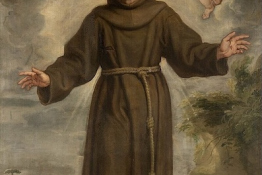Uganda: When the killer becomes the healer
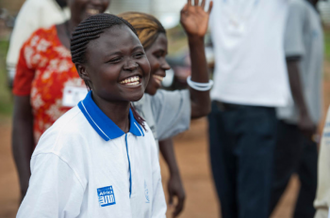
One of the young counsellors
How does a child soldier return home once a conflict ends? During northern Uganda's twenty-year civil war, the UN estimates 30,000 children -some as young as six- were abducted by Joseph Kony's brutal Lord's Resistance Army (LRA). Many were forced to kill or be killed; all saw atrocities, and many endured rape and slave-like conditions for years.
It is hardly surprising that when the child soldiers return from the bush they are rarely welcomed back. Their communities had been ravaged by decades of war, and families still struggle to survive. Who would want to find the disturbed man who killed your parents when he was a child living next door?
Moreover, how do you treat the post-traumatic stress disorder (PTSD) of hundreds of thousands of people who were abducted by the LRA? And how do you counsel them in a place short on aspirin, let alone adequate mental health services?
Patongo in north east Uganda has been neglected to the point of invisibility. There was only one other humanitarian aid group present when my UK-based NGO, Network for Africa, arrived. In such a desperately poor place it was vital to train people to improve their earnings through farming and small business. But we soon realized any training would be a waste of time while vast numbers of people were so traumatized by their recent experiences.
We surveyed 237 people to try to measure the extent of the PTSD endured by the whole community, not just the former child soldiers. We found 63% had been tortured, 71% had witnessed killing and 25% had been forced to kill by the LRA. Almost half the people in our survey considered killing themselves at least weekly.
Lack of resources forced us to find a new approach: selecting the brightest and keenest local survivors, and training them to become counsellors. The plan was that they in turn would teach people how to manage their trauma. With the help of Barbara Bauer and Shelly Evans, two remarkable volunteer psychotherapists from the States, we started our pilot project in Patongo.
Barbara and Shelly began by defining trauma; in traditional, rural Africa there is little knowledge of mental illness, so it is assumed depressed people assume are physically unwell or possessed. (This default superstition is not helped by the status of witch doctors who exploit people's ignorance by charging vast fees for "help"). Barbara and Shelly taught standard psychotherapy techniques such as relaxation and breathing exercises, and how to visual a safe place. They then taught our trainee counsellors how to communicate these techniques, to monitor progress and to add culturally-appropriate improvements such as games.
Now, five years later, we have reached about 10,000 people, and our surveys and daily experience show how much has been achieved by our core team of 28 counsellors. Armed only with bicycles, they go to remote villages to hold regular group and individual therapy sessions. They also give advice on a radio phone-in, and at our drop-in centre.
Five of the counsellors now focus on helping HIV positive patients at the local clinic. Previously, patients being tested would be given three minutes with the nurse who would give them their result and tell them how to take the anti-retroviral medicine. Not surprisingly, people testing positive immediately plunged into despair. Now, our counsellors support them as they learn to cope, assuring them their lives are not at an end. They also play an important role in educating mothers about transmission to babies. In an area where HIV infection runs at 11% (twice the national average) their work is hugely appreciated.
The problems most often encountered by the 23 counsellors who work village by village are depression, suicidal thoughts, flashbacks, alcoholism, early marriage and sexual violence. They are on call night and day, and have become central figures in their town, relied on for advice and emergency help at all hours. Their personal journeys are remarkable: from being abducted children to being the most respected members of their community.
A measure of their success is when their clients begin to ask for advice on how they can rebuild their lives, a sure sign they are now managing their trauma, confident they have a future. Thus begins phase two: our counsellors have become such trusted bearers of wisdom that over the years we have trained them in additional skills. Now, when they visit villages they hold regular sessions on subjects as varied as how to set up a village savings and loan scheme; family planning; farming more efficiently; keeping livestock; fighting alcoholism; avoiding HIV infection; recognizing and handling epilepsy, and solving conflicts over land ownership.
Working together to solve problems is the bedrock of re-establishing communities devastated by war. The counsellors' aim is to start income generating projects, such as keeping pigs or growing cash crops. We find the resources and give advice on running a cooperative business, saving money and give loans to fledging initiatives. Once the project is up and running, our counsellors exit.
Our counsellors' fame has spread, meaning other communities in northern Uganda want us to replicate our simple but effective technique in their areas. Hence we will be trying to find the resources to send a core group of counsellors to set up satellite projects.
If you wish to support this work, or would like more information, please contact me at Tinsleyrc@aol.com or visit: Network for Africa, www.network4africa.org



